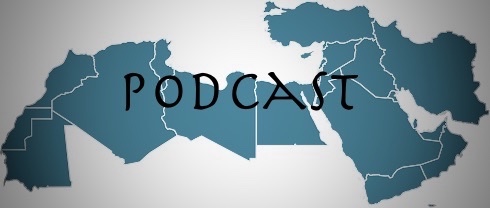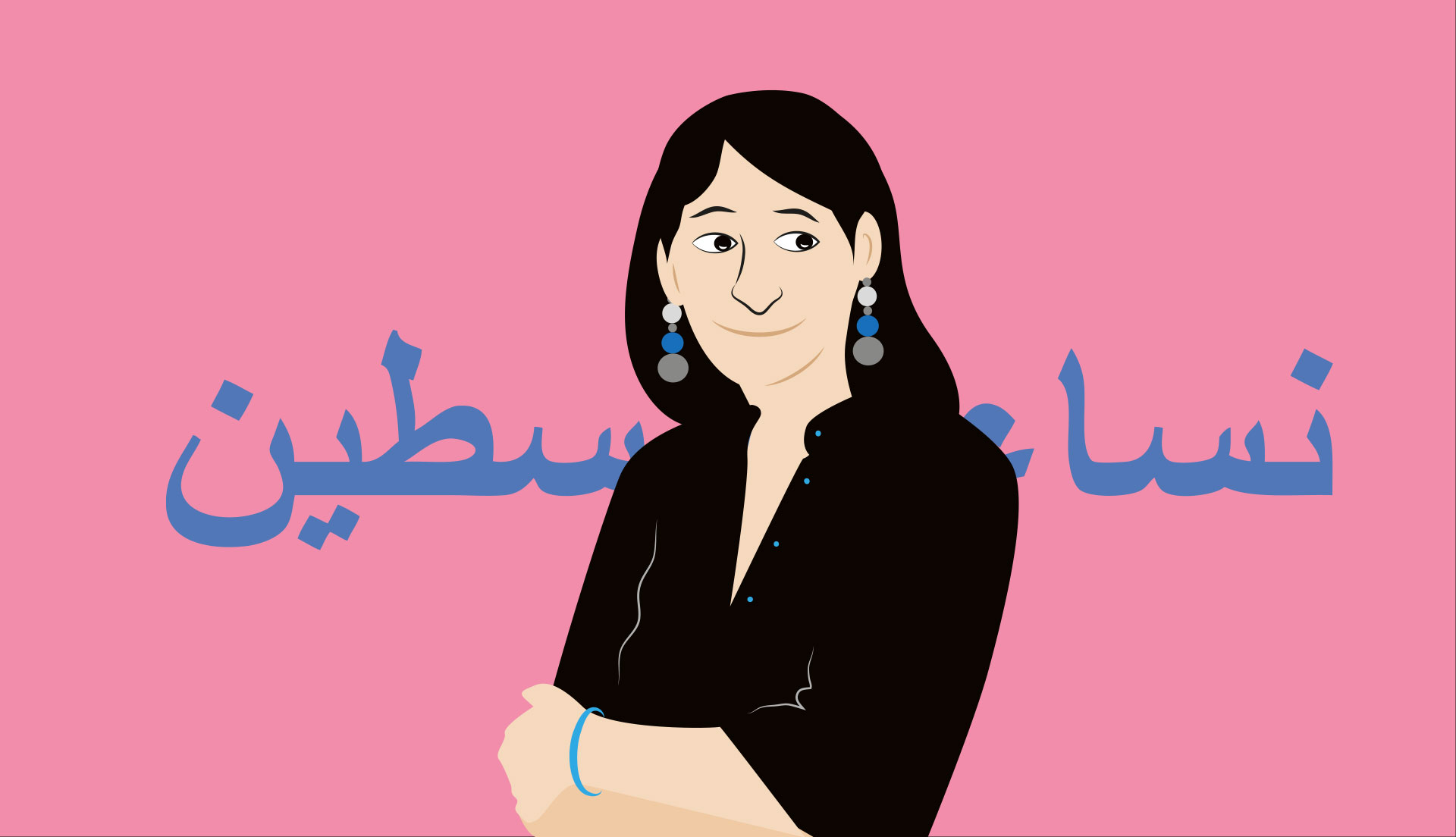Without an agreement on a national program the inter-Palestinian [Fatah/Hamas] split cannot be ended. Without national unity, it is impossible to move forward, either peacefully via negotiations and political and diplomatic action, or by warlike means via resistance, boycott, and an intifada
by Hani al Madri – Masarat
(translated by Mideast Mirror Ltd)
Two weeks have passed since the U.S.’s recognition of Jerusalem as Israel’s capital, during which the inter-Palestinian dialogue has remained stuck in discussions of the nature of the policies and steps that should be taken in response. There are those who demand for the 1993 Oslo Accords to be cancelled, the PA to be dissolved, the so-called ‘two-state solution’ to be abandoned, the adoption of the liberation of Palestine or a one-state solution as a main option, and the detonation of all forms of resistance and an open-ended intifada against the occupation that will not cease except when the national aims have been achieved.
Advocates of this view include those who demand that the Palestinians should join the ‘axis of resistance and opposition’ that includes Iran, Syria, Iraq, and Hezbollah, and sever all relations and contacts with the U.S., and boycott all its goods and companies. But there are also some who believe that this axis is no less dangerous than Israel, and demand that we wager on the Arab peoples and pursue a policy of steering clear of all axes, at the very least.
Then there are those demanding that the president [Mahmoud ‘Abbas] should not return from his visits abroad until the U.S. administration backs down from its decision, urging him to go to Gaza and reside there, and hold meetings there, beginning with the PLO’s temporary framework and ending with convening a unifying Palestine National Council (PNC).
On the other side, there are those who believe that the popular and official Palestinian, Arab, regional, Islamic, and international outburst has restored the Palestinian cause to the forefront and isolated the U.S., and that this may end in foiling Trump’s decision and aborting the ‘deal of the century’ before it sees the light of day. Advocates of this view believe that the Palestinian cause is a rallying cause that can unite all, and that it would be lethal to show any bias to any axis, especially the Iranian-led axis. They believe that if there is no alternative but to join some axis, then it should be the [Saudi-led] moderate axis, because it is the strong axis that enjoys the support of most of the powers that influence international decisions. Advocates of this view maintain that the global outbreak of anger against the U.S.’s Jerusalem decision has in fact revived the ‘two-state option’ rather than killed it off.
It has made it clear that the Palestinian people cannot be bypassed in any new future map for the region. Moreover, if it proves unable to impose the establishment of a Palestinian state, the new international mood can at least foil the U.S./Israeli plans to establish ‘Greater Israel’ and form an Arab/Israeli/U.S. alliance against Iran and its allies. And although some of the most prominent supporters of this point of view have threatened to abandon the two-state solution and adopt the one-state model, this was no more than an attempt to threaten Israel with the [Palestinian] demographic bomb may explode in its face if it continues to reject the establishment of the Palestinian state along the 1967 borders, and scare the region and the world with the potential repercussions of what is happening for their security and stability.
When those who advocate of this viewpoint say that the U.S. administration has removed itself from the ‘peace process,’ that it is no longer an honest mediator or a mediator at all, and that we should search for a new sponsor or sponsors for this process, they are doing so as a tactical reaction to the U.S. decision, in the hope that it may back down from it or clarify it in a manner that makes room for the two-state solution again or some new version of it.
After all, they realize that there is no alternative to the American sponsor of the peace process. For despite Europe’s strong criticisms of the U.S.’s recognition of Jerusalem as Israel’s capital, it has not gone so far as to offer itself as an alternative, and has opposed the demand to abandon American sponsorship. For its part, Russia, does not want to assume responsibility for this role; nor is it able to do so. And as for China, the most it aspires to at this juncture is to take part in sponsoring the process, but has no wish to replace the U.S. So what is needed is a new political process that is fundamentally different from before, and this calls for altering the facts on the ground, not merely demanding that they be changed. What lends greater credence to the above argument is that any mediator or sponsor must be acceptable to both sides, not one side alone. And Israel will not accept an alternative or a partner to the U.S. as a sponsor of the ‘peace process.’ In fact, even when it comes to the U.S.’s role, Israel imposes strict restrictions on it so as to ensure that it does not influence its freedom of action when it comes to implementing its racist, settler, and colonial schemes of aggression.
The above indicates that delivering the coup de grace to the so-called ‘peace process’ – which entered the Intensive Care Unit a long time ago and has not and cannot lead to peace – will not pave the road before a new process, at least in the immediate future. What it will pave the way for is an open-ended conflict in which each side will try to break the other’s will and force it to submit to its terms.
And there is a third point of view which is not expressing itself publicly, but which is present and has some influence. It believes that there is no other path but to continue to cling to the current political process, and that rejects any decision to end contacts with the U.S. or refuse to meet with the U.S. vice-president, but without proposing an alternative.
There is no room in this article for dealing critically and analytically with all the issues raised by the advocates of the aforementioned points of view. But I will confine myself to certain signals, with a promise to deal more broadly with these issues in the future.
Without an agreement on a national program that embodies common denominators based on partnership, the inter-Palestinian [Fatah/Hamas] split cannot be ended and national unity cannot be regained. But without national unity, it is impossible to move forward, either peacefully via negotiations and political and diplomatic action, or by warlike means via resistance, boycott, and an intifada.
The fact is that the current wave of protest that has broken out in Palestine, and whose repercussions have reached to the entire world, has not reached the level of a full-blown intifada; nor will it do so any time soon, despite the fact that some have described it in these terms ever since it began. And there are many reasons for this, including the fact that there is no agreement on a central unifying aim and agreed-upon forms of struggle, the absence of sufficient hope of achieving that aim, the inter-Palestinian split that is hemorrhaging Palestinian resources in domestic conflict, the leadership’s lack of faith in the intifada mode of struggle and its view of popular action as no more than a tactical tool that should remain within controlled limits since loss of control would have dire consequences. But, though legitimate, the fear that an intifada would develop into chaos, a security breakdown, and a multiplication of authorities and decision-making centers, cannot justify the failure to work towards securing all the requirements for its outbreak while considering the means of preventing it from descending into chaos.
Moreover, the special interests that have grown on the PA’s tree here and there, the concern for protecting them and their growth, are preventing the immediate outbreak of a comprehensive intifada, especially since the forces that have called for such an intifada either do not have the sufficient power or will to stage one, or do not really wish to move towards implementing their call or to present themselves in a manner that blocks the path to their being recognized as a current partner or an alternative one at a later stage.
It may be that the current wave of protest is not necessarily a candidate for developing into an all-out popular or armed (or both popular and armed) intifada or comprehensive civil disobedience campaign before real unity and the formulation of a new vision and a will to pay the price, as well as a realistic plan that can be implemented, have matured. But this does not mean that the current intifada wave is harmful or that it cannot achieve tangible aims in the long run. For it can break Trump’s decision and foil the ‘deal of the century’ before it is born. More importantly, it can prevent the cause from being liquidated, keep it alive, reduce the gains and losses, and bolster the people’s steadfastness and presence on their homeland’s soil, foiling all the occupation’s schemes and preventing any Palestinian deviation towards solutions that would liquidate the cause. These are all major achievements that would pave the way for victories to come if only after a while.
Intervention in the domestic affairs of Arab states, or bias to one Arab and regional axis at the expense of the other, is a recipe for destroying the cause and harming the Palestinian communities that are residing and working in the countries of the other axis. Perhaps the best evidence of this comes from the previous and painful Palestinian experiences in circumstances that were better than the current ones, such as what happened in Jordan and Lebanon after Iraq’s [1990] occupation of Kuwait, and especially in Egypt and Syria after the Arab Spring broke out, forcing the Palestinians to pay a heavy price.
Moreover, dissolving the PA is not a solution. It is rather a free gift to the occupation that can fill the vacuum by installing local security and family leaders, enabling it to implement its schemes, such as the ‘seven principalities plan’ that represents living evidence of this. For what we need is to realize our state, liberate ourselves from Oslo, and change the PA instead of dissolving it, turning it into a tool in the hands of a unified PLO. Moreover, the current situation does not permit the establishment of one state or two states for us to fight over which of the two options is better or possible. What we need to focus on is to collect all the elements of power and pressure with the aim of altering the balance of power and such that they will enable us to attain the Palestinian rights.
Moreover, the proposal that President Mahmoud ‘Abbas should reside in occupied Gaza would also greatly facilitate Israel’s ongoing process of swallowing up the West Bank, which is proceeding unabated, promoting the option of an illusory Palestinian state in Gaza that may be or may not linked by bypasses to the West Bank, and which may or may not be given lands from Sinai – according to declared Israeli schemes that aim to liquidate the cause as a means of resolving it.
The Palestinian cause is just and morally superior, and is in the midst of a national liberation phase. This makes it a unifying cause that attracts the support and backing of various parties and axes despite the disagreements between them – as emerged from the Security Council meeting, the Arab foreign ministers’ meeting, the Istanbul Islamic summit, and popular action across almost the entire planet. But this support and backing must be based on commitment to a number of principles, the most important of which is not to interfere in domestic Palestinian affairs, and to believe that the Palestinians are a colonized and mistreated nation that is aspiring to freedom, justice, independence, and peace, and that it wants to establish relations with any state or power to the extent to which that state or power backs Palestine.
Moreover, Palestine’s interest lies in always siding with the freedom and progress of nations, and with their march towards justice, independence, democracy, and respect for human rights and freedoms. Nena News





























